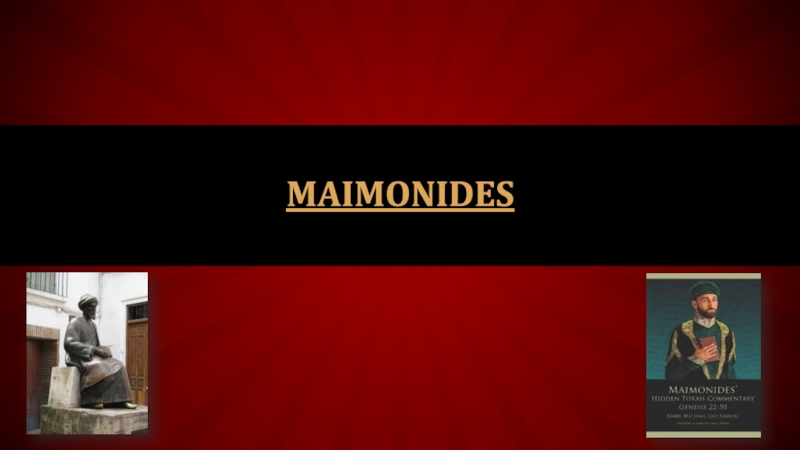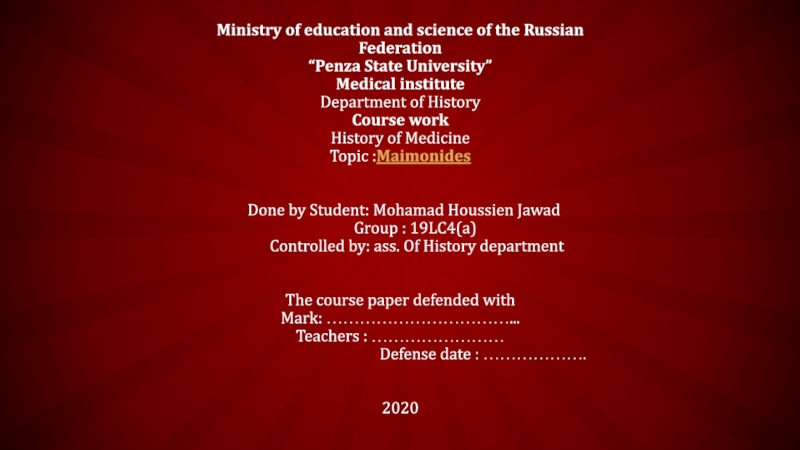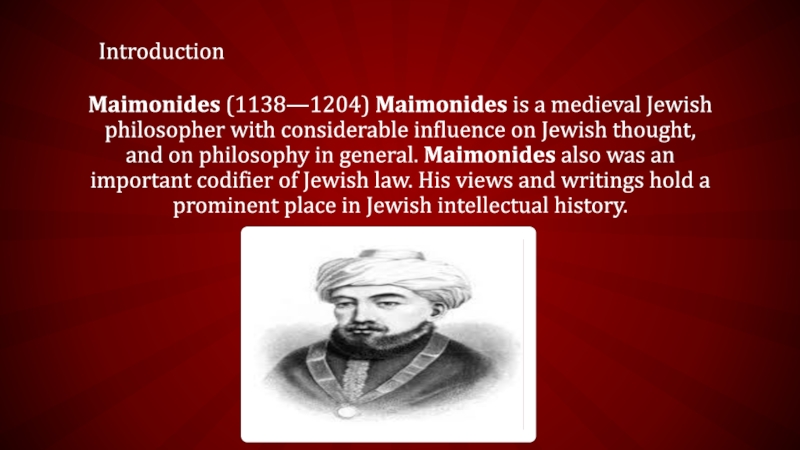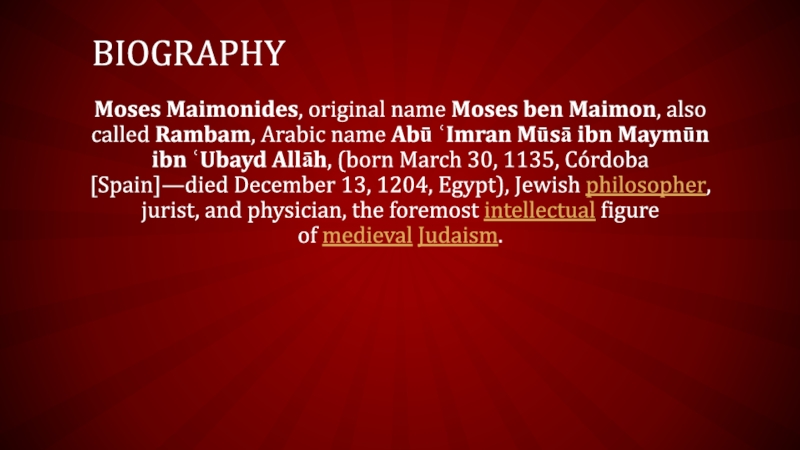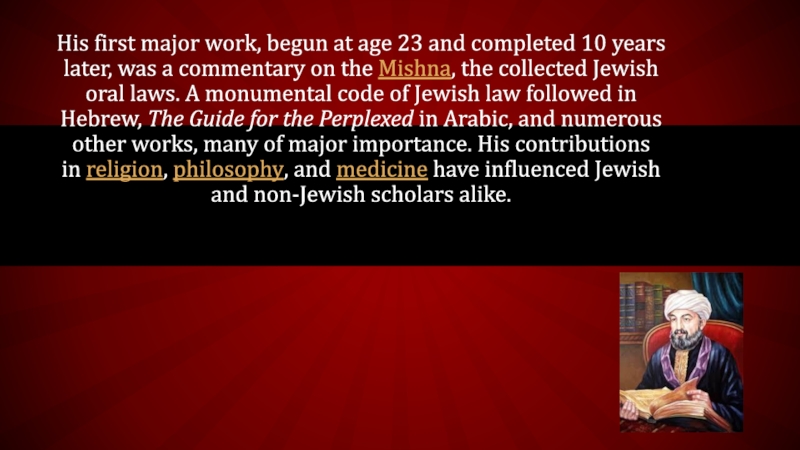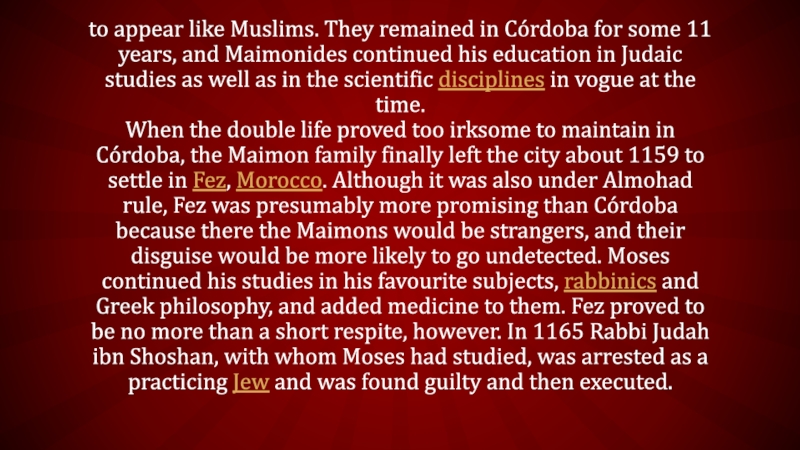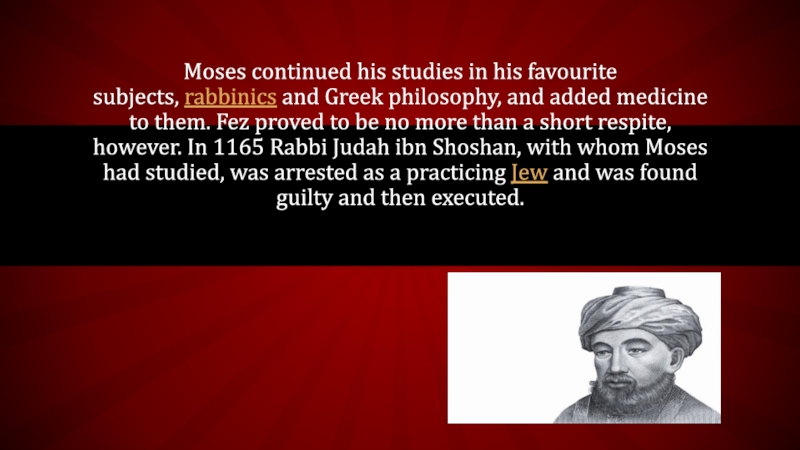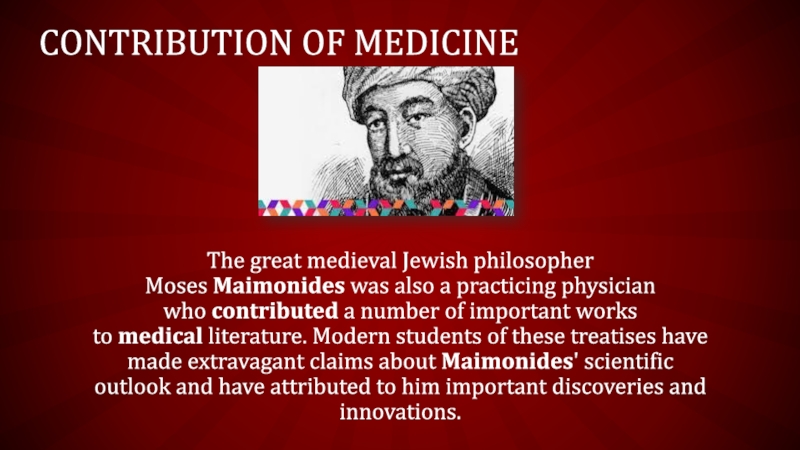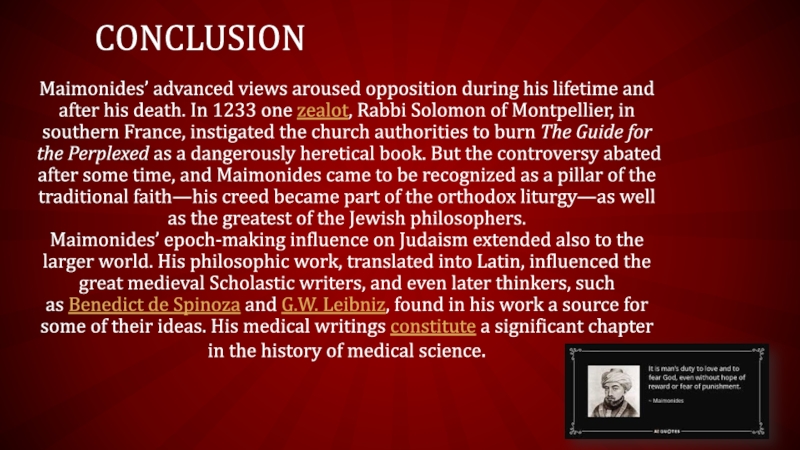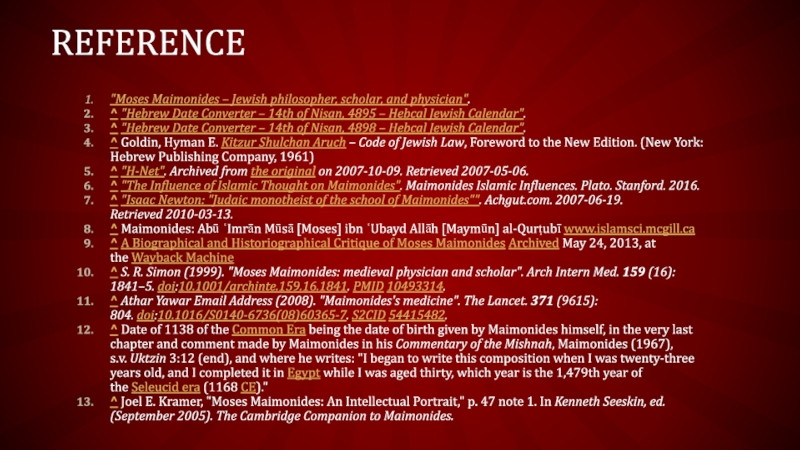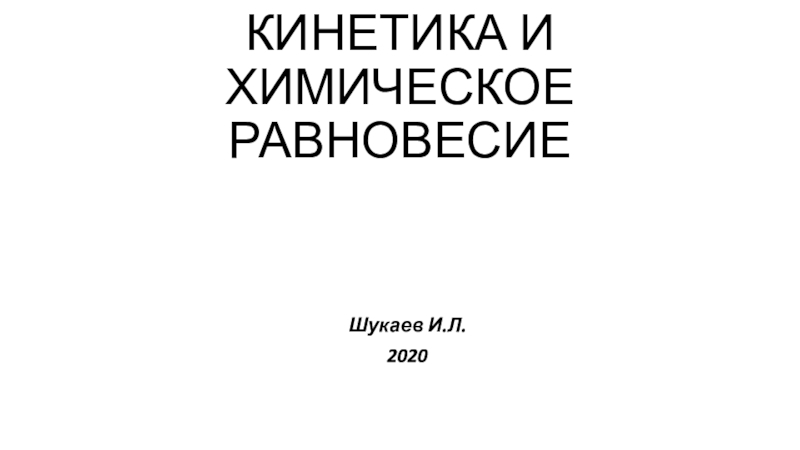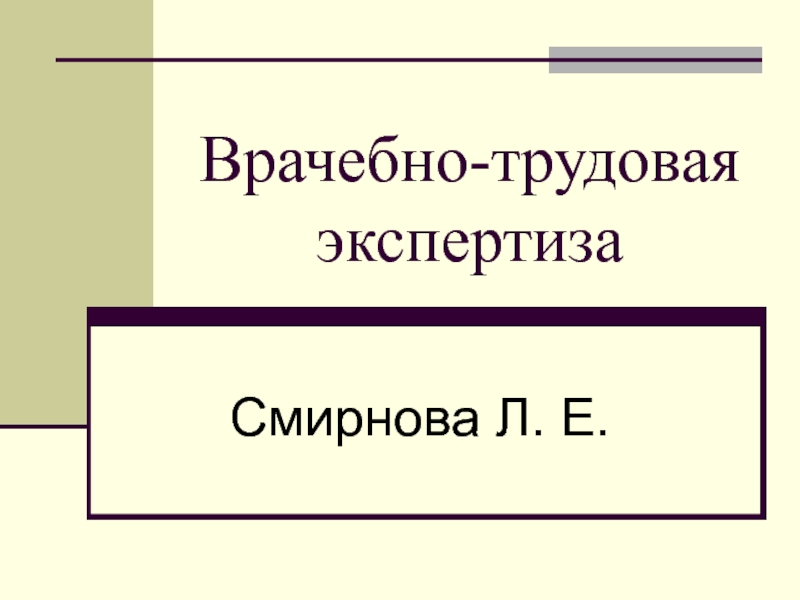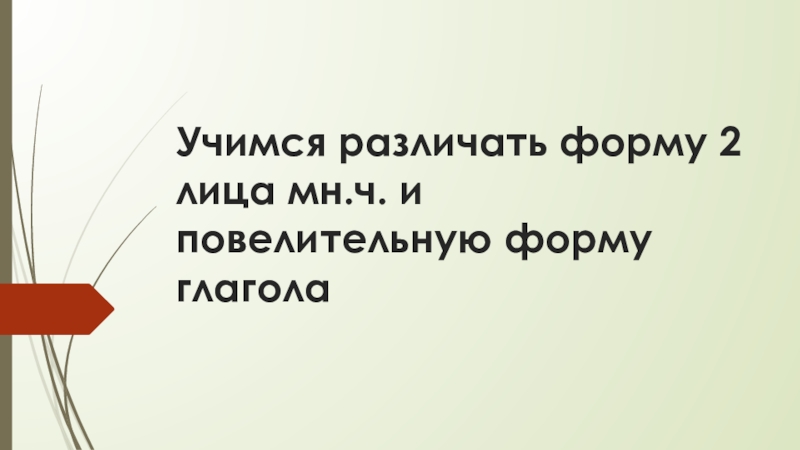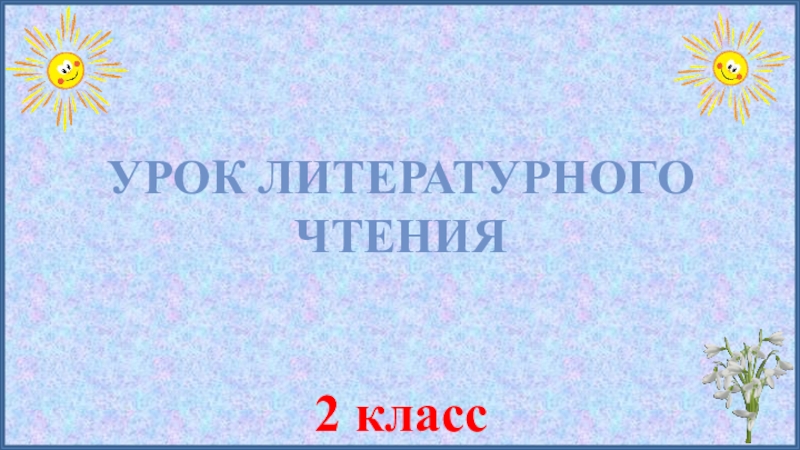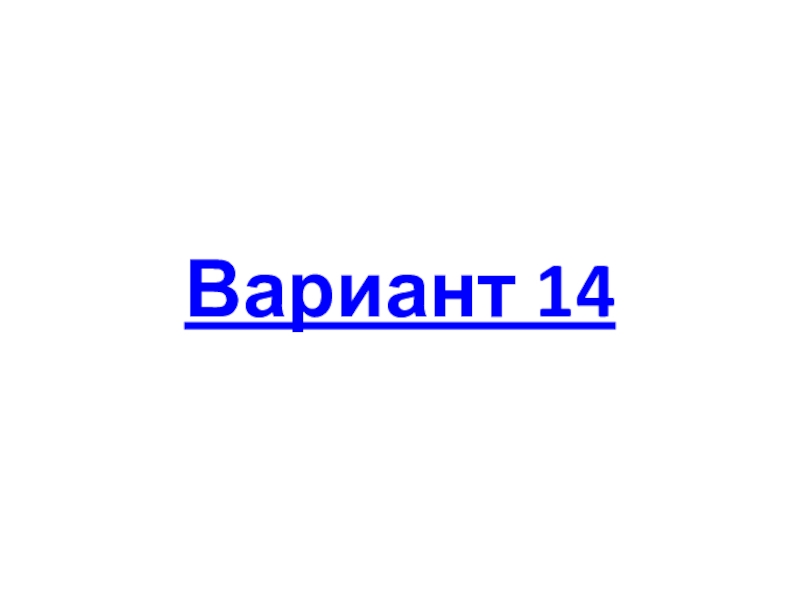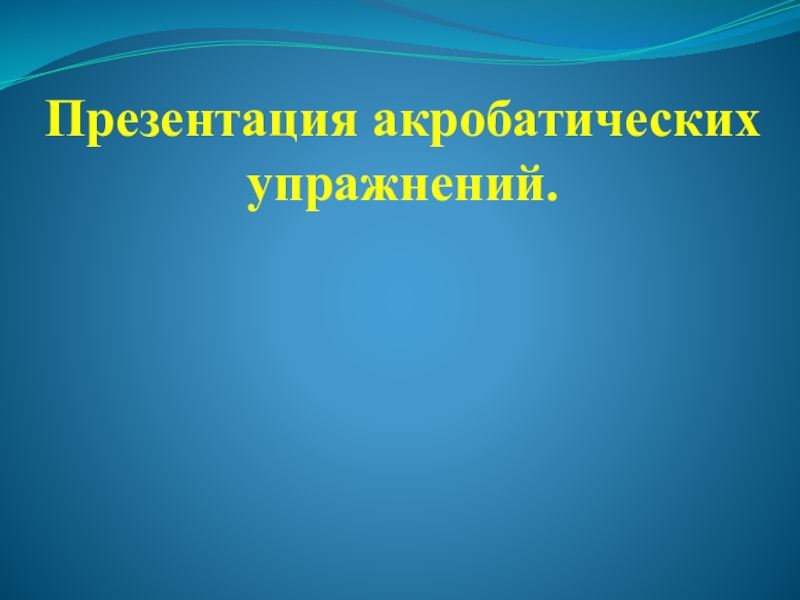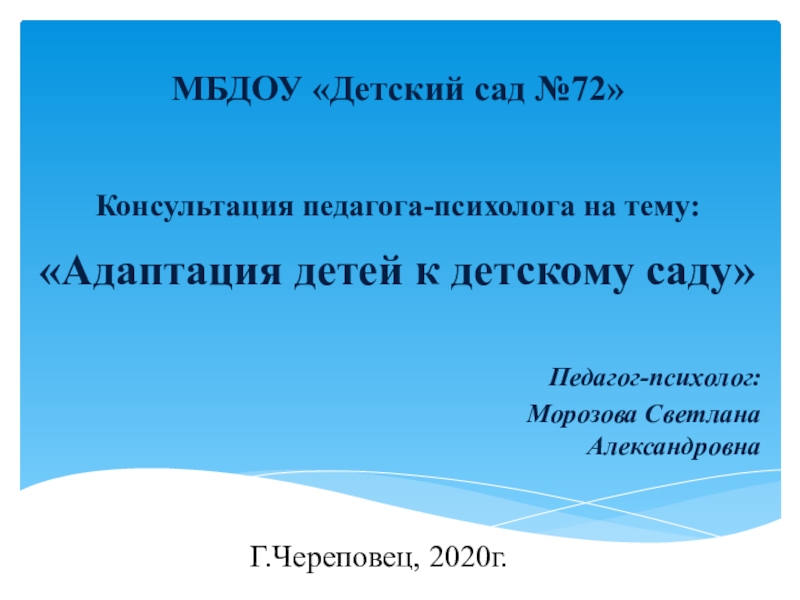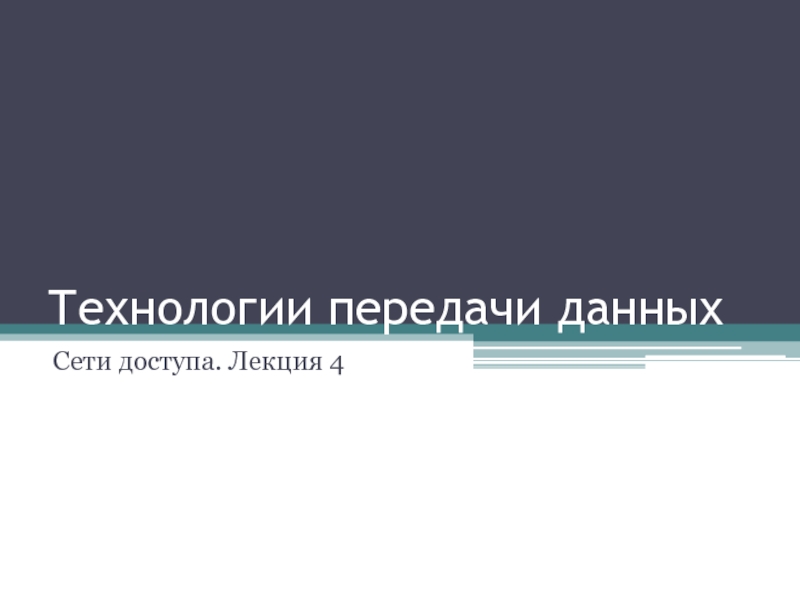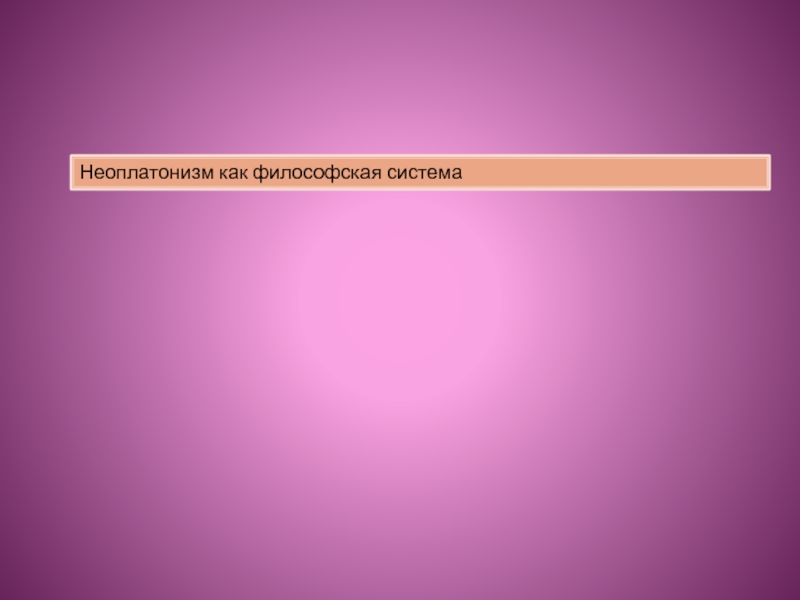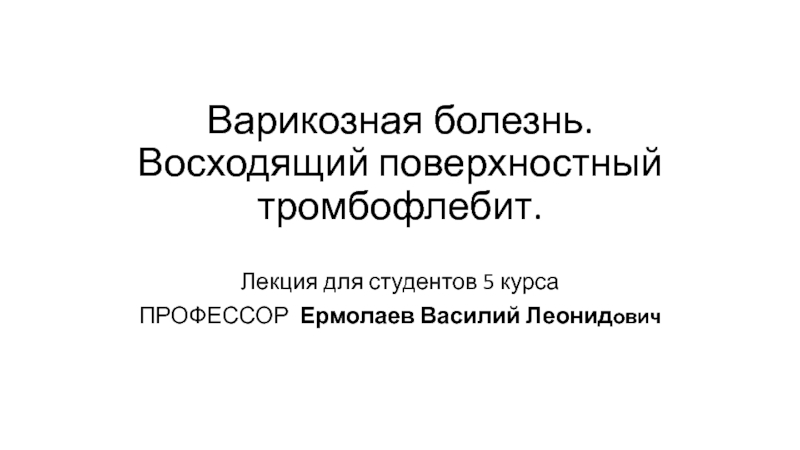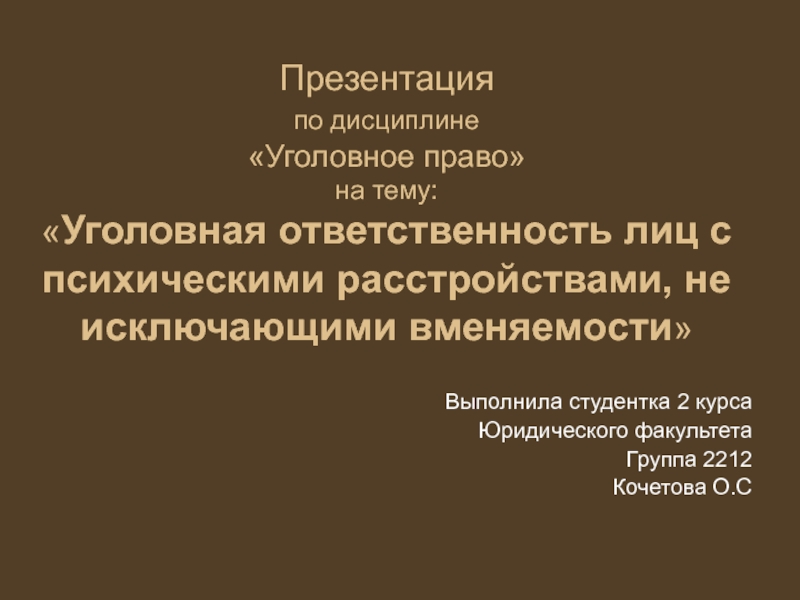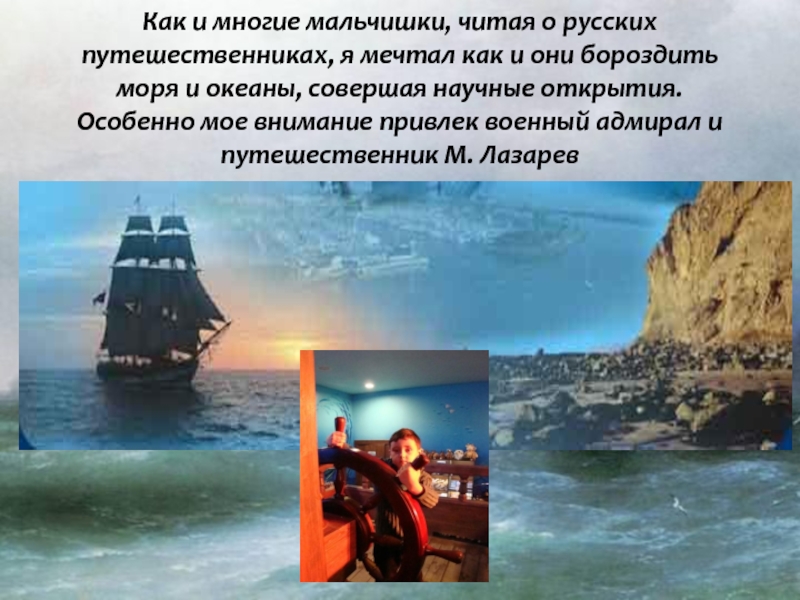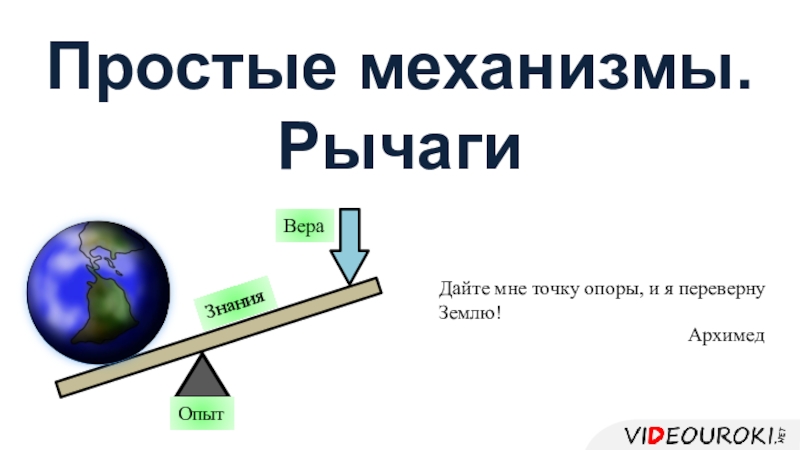Разделы презентаций
- Разное
- Английский язык
- Астрономия
- Алгебра
- Биология
- География
- Геометрия
- Детские презентации
- Информатика
- История
- Литература
- Математика
- Медицина
- Менеджмент
- Музыка
- МХК
- Немецкий язык
- ОБЖ
- Обществознание
- Окружающий мир
- Педагогика
- Русский язык
- Технология
- Физика
- Философия
- Химия
- Шаблоны, картинки для презентаций
- Экология
- Экономика
- Юриспруденция
Maimonides
Содержание
- 1. Maimonides
- 2. Ministry of education and science of the
- 3. Maimonides (1138—1204) Maimonides is a medieval Jewish philosopher with considerable
- 4. BiographyMoses Maimonides, original name Moses ben Maimon, also
- 5. His first major work, begun at age
- 6. Maimonides was born into a distinguished family
- 7. As part of Islamic Spain, Córdoba had accorded
- 8. to appear like Muslims. They remained in
- 9. Moses continued his studies in his favourite
- 10. Contribution of medicineThe great medieval Jewish philosopher
- 11. ConclusionMaimonides’ advanced views aroused opposition during his
- 12. Reference"Moses Maimonides – Jewish philosopher, scholar, and
- 13. Скачать презентанцию
Ministry of education and science of the Russian Federation “Penza State University” Medical institute Department of History Course work History of Medicine Topic :Maimonides
Слайды и текст этой презентации
Слайд 3Maimonides (1138—1204) Maimonides is a medieval Jewish philosopher with considerable influence on Jewish
thought, and on philosophy in general. Maimonides also was an important codifier
of Jewish law. His views and writings hold a prominent place in Jewish intellectual history.Introduction
Слайд 4Biography
Moses Maimonides, original name Moses ben Maimon, also called Rambam, Arabic name Abū
ʿImran Mūsā ibn Maymūn ibn ʿUbayd Allāh, (born March 30,
1135, Córdoba [Spain]—died December 13, 1204, Egypt), Jewish philosopher, jurist, and physician, the foremost intellectual figure of medieval Judaism.Слайд 5His first major work, begun at age 23 and completed
10 years later, was a commentary on the Mishna, the collected
Jewish oral laws. A monumental code of Jewish law followed in Hebrew, The Guide for the Perplexed in Arabic, and numerous other works, many of major importance. His contributions in religion, philosophy, and medicine have influenced Jewish and non-Jewish scholars alike.Слайд 6Maimonides was born into a distinguished family in Córdoba (Cordova), Spain. The
young Moses studied with his learned father, Maimon, and other masters and
at an early age astonished his teachers by his remarkable depth and versatility. Before Moses reached his 13th birthday, his peaceful world was suddenly disturbed by the ravages of war and persecution.As part of Islamic Spain, Córdoba had accorded its citizens full religious freedom. But now the Islamic Mediterranean world was shaken by a revolutionary and fanatical Islamic sect, the Almohads (Arabic: al-Muwaḥḥidūn, “the Unitarians”), who captured Córdoba in 1148, leaving the Jewish community faced with the grim alternative of submitting to Islam or leaving the city. The Maimons temporized by practicing their Judaism in the privacy of their homes, while disguising their ways in public as far as possible
Слайд 7As part of Islamic Spain, Córdoba had accorded its citizens full
religious freedom. But now the Islamic Mediterranean world was shaken
by a revolutionary and fanatical Islamic sect, the Almohads (Arabic: al-Muwaḥḥidūn, “the Unitarians”), who captured Córdoba in 1148, leaving the Jewish community faced with the grim alternative of submitting to Islam or leaving the city. The Maimons temporized by practicing their Judaism in the privacy of their homes, while disguising their ways in public as far as possibleСлайд 8to appear like Muslims. They remained in Córdoba for some
11 years, and Maimonides continued his education in Judaic studies
as well as in the scientific disciplines in vogue at the time.When the double life proved too irksome to maintain in Córdoba, the Maimon family finally left the city about 1159 to settle in Fez, Morocco. Although it was also under Almohad rule, Fez was presumably more promising than Córdoba because there the Maimons would be strangers, and their disguise would be more likely to go undetected. Moses continued his studies in his favourite subjects, rabbinics and Greek philosophy, and added medicine to them. Fez proved to be no more than a short respite, however. In 1165 Rabbi Judah ibn Shoshan, with whom Moses had studied, was arrested as a practicing Jew and was found guilty and then executed.
Слайд 9Moses continued his studies in his favourite subjects, rabbinics and Greek philosophy,
and added medicine to them. Fez proved to be no
more than a short respite, however. In 1165 Rabbi Judah ibn Shoshan, with whom Moses had studied, was arrested as a practicing Jew and was found guilty and then executed.Слайд 10Contribution of medicine
The great medieval Jewish philosopher Moses Maimonides was also a
practicing physician who contributed a number of important works to medical literature. Modern students
of these treatises have made extravagant claims about Maimonides' scientific outlook and have attributed to him important discoveries and innovations.Слайд 11Conclusion
Maimonides’ advanced views aroused opposition during his lifetime and after
his death. In 1233 one zealot, Rabbi Solomon of Montpellier, in
southern France, instigated the church authorities to burn The Guide for the Perplexed as a dangerously heretical book. But the controversy abated after some time, and Maimonides came to be recognized as a pillar of the traditional faith—his creed became part of the orthodox liturgy—as well as the greatest of the Jewish philosophers.Maimonides’ epoch-making influence on Judaism extended also to the larger world. His philosophic work, translated into Latin, influenced the great medieval Scholastic writers, and even later thinkers, such as Benedict de Spinoza and G.W. Leibniz, found in his work a source for some of their ideas. His medical writings constitute a significant chapter in the history of medical science.
Слайд 12Reference
"Moses Maimonides – Jewish philosopher, scholar, and physician".
^ "Hebrew Date Converter
– 14th of Nisan, 4895 – Hebcal Jewish Calendar".
^ "Hebrew Date
Converter – 14th of Nisan, 4898 – Hebcal Jewish Calendar".^ Goldin, Hyman E. Kitzur Shulchan Aruch – Code of Jewish Law, Foreword to the New Edition. (New York: Hebrew Publishing Company, 1961)
^ "H-Net". Archived from the original on 2007-10-09. Retrieved 2007-05-06.
^ "The Influence of Islamic Thought on Maimonides". Maimonides Islamic Influences. Plato. Stanford. 2016.
^ "Isaac Newton: "Judaic monotheist of the school of Maimonides"". Achgut.com. 2007-06-19. Retrieved 2010-03-13.
^ Maimonides: Abū ʿImrān Mūsā [Moses] ibn ʿUbayd Allāh [Maymūn] al‐Qurṭubī www.islamsci.mcgill.ca
^ A Biographical and Historiographical Critique of Moses Maimonides Archived May 24, 2013, at the Wayback Machine
^ S. R. Simon (1999). "Moses Maimonides: medieval physician and scholar". Arch Intern Med. 159 (16): 1841–5. doi:10.1001/archinte.159.16.1841. PMID 10493314.
^ Athar Yawar Email Address (2008). "Maimonides's medicine". The Lancet. 371 (9615): 804. doi:10.1016/S0140-6736(08)60365-7. S2CID 54415482.
^ Date of 1138 of the Common Era being the date of birth given by Maimonides himself, in the very last chapter and comment made by Maimonides in his Commentary of the Mishnah, Maimonides (1967), s.v. Uktzin 3:12 (end), and where he writes: "I began to write this composition when I was twenty-three years old, and I completed it in Egypt while I was aged thirty, which year is the 1,479th year of the Seleucid era (1168 CE)."
^ Joel E. Kramer, "Moses Maimonides: An Intellectual Portrait," p. 47 note 1. In Kenneth Seeskin, ed. (September 2005). The Cambridge Companion to Maimonides.
